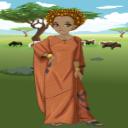Yahoo Answers is shutting down on May 4th, 2021 (Eastern Time) and the Yahoo Answers website is now in read-only mode. There will be no changes to other Yahoo properties or services, or your Yahoo account. You can find more information about the Yahoo Answers shutdown and how to download your data on this help page.
Trending News
What's the difference between a parable and a fable?
How close was Aesop to having his own religion?
15 Answers
- Anonymous8 years agoFavorite Answer
The difference? The number of followers.
Seriously, that's it.
- 8 years ago
Not much :-)
I suspect the primary thing that prevented Aesop from becoming a religious figure was the unfortuante fact that he was a slave. I certainly don't REMOTELY condone slavery, but I do have to wonder if the pressures of being enslaved made him a person who did a lot of thinking about why people do things (like enslave others), and resulted in the fables we know so well today.
We all respond to our environment; I would NEVER wish poliomyelitis on anyone, but would Itzak Perlman have become the amazing violinist he is today had he not had that disease as a child which forced his to abandon many more-physical pursuits?
- sugarbeeLv 78 years ago
A parable is an illustration, or a way to get someone to think on an issue that's being presented. Sometimes putting it in a way that they can relate to.
A fable is a tale; or a made up story.
- Gary BLv 78 years ago
A parable is a story based on fact, but uses similar facts from other areas of life to support it. Jesus taught with parables, using real-life examples to explain the facts about how God wants things to be understood. Jesus often used real life examples of farming (yokes, sowing seeds, gradfting, etc) to explain how God works.
A fable is based on fact, but uses imaginary situations to explain them. Aesop often used human-like thoughts, actions, interactions, even cooperations, but applied them to animals, producing imaginary acts that do not happen in nature.
Because of the imaginary status of the examples, Aesop never claimed any god-like characteristics, nor any connections to a greater god.
- LowlyLv 78 years ago
A fable tries to teach a moral lesson; a parable illustrates a spiritual truth.
In the fable abut the grasshopper and the ant, one learns that diligence and hard work, and preparing for the winter is a good strategy for survival.
In the parable of the "prodigal son", you do not learn to work hard, or prepare, or survive on your own.
You learn that God loves you because God loves you; not for what you do but for who you are.
- ?Lv 78 years ago
A parable is a succinct story, in prose or verse, which illustrates one or more instructive principles, or lessons, or (sometimes) a normative principle. It differs from a fable in that fables use animals, plants, inanimate objects, and forces of nature as characters, while parables generally feature human characters. It is a type of analogy
- DanteLv 58 years ago
Parables are allegories which convey a truth.
Fables are often false statements or beliefs used in a story form to convey a moral.
- ?Lv 78 years ago
The chief difference is the person who is telling the story. Jesus told parables. Asop told fables. Both are stories that seek to impart a moral lesson.
Source(s): conventional usage of English - ?Lv 78 years ago
its like the difference between truth in religion and lies in evolution
one edifies unto the truth 1 Tim. 1: 4
4 Neither give heed to fables and endless genealogies, which minister questions, rather than godly edifying which is in faith: so do.





